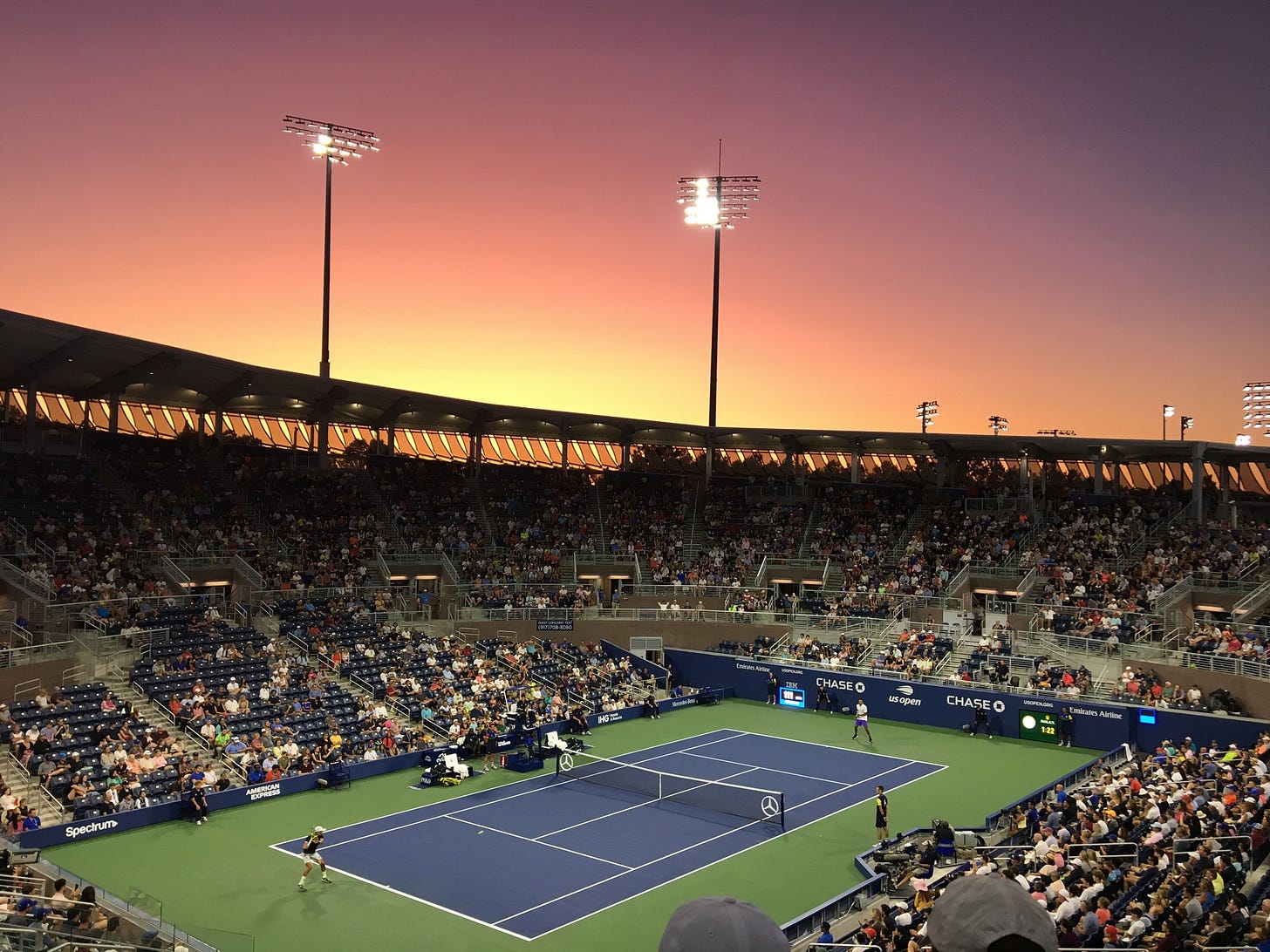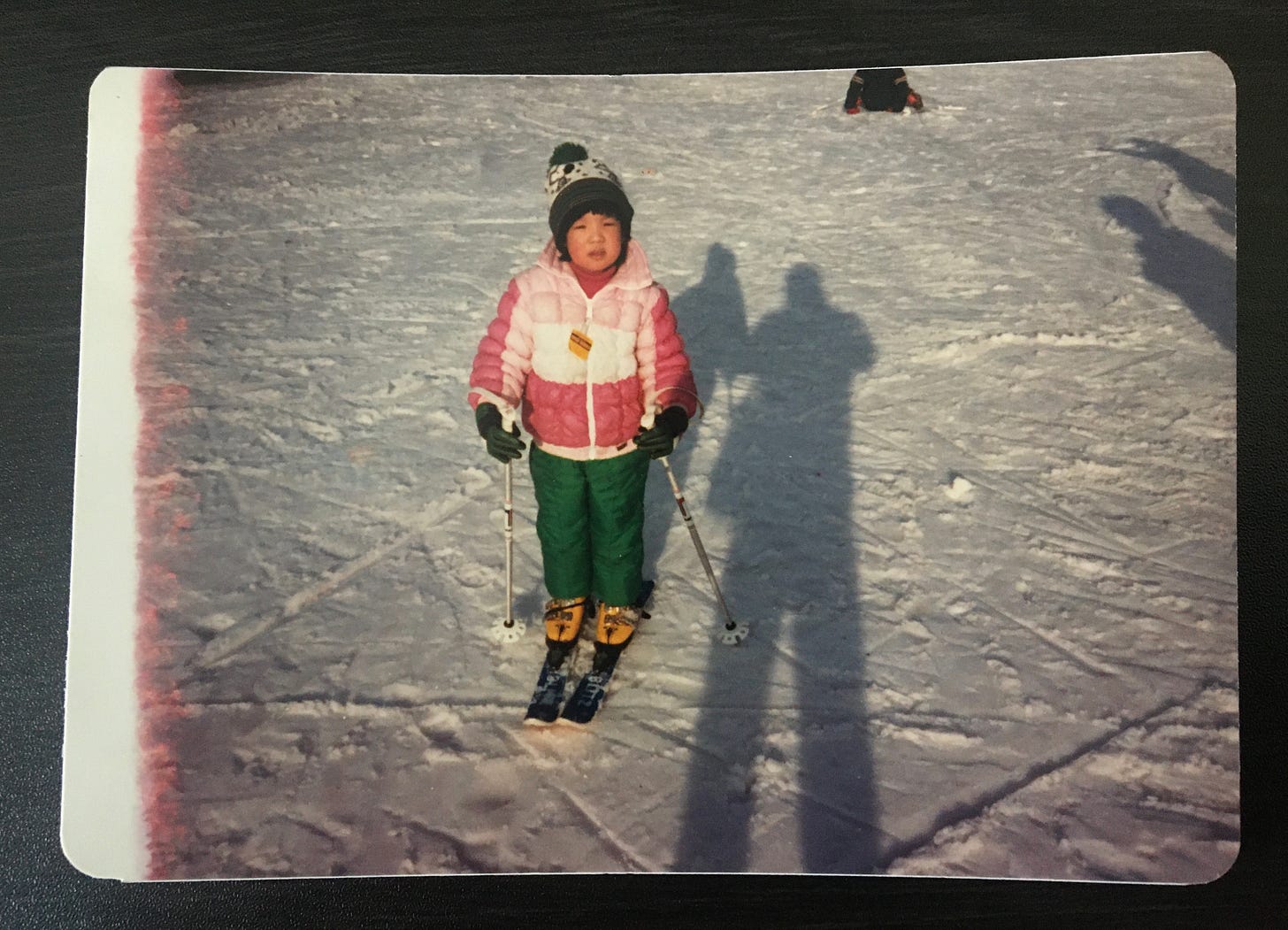The Summer of Women's Sports
The records, stories, and the power of belief. Do we have to keep making the case for women's sports?
I’m trying really hard not to start this newsletter with some reference to how August slipped away into a moment in time (obviously failing miserably) but wow. September, huh?
It’s nice to come back here—and to so many new faces! I’m trying not to feel like a bad hostess, one who invited people over but then left everyone to mingle amongst themselves, but I hit a wall this summer, which I’ll talk about more next week. But I’m back and excited to dedicate more time to this newsletter. In the meantime, thank you for being here. Please say hi in the comments and tell me how your summer was. What topics would you like to see covered here?
One last thing: My friend Alyssa Ages has an amazing book out today! Secrets of Giants1 is a deep dive into the science and psychology of why pushing our physical limits is so impactful—and how we can achieve so much more than we know. Alyssa will be in NYC to celebrate her book launch and I’m honored to be in conversation with her. Join us?
September 18, 7pm at Mile High Run Club, NoMad (24 W 25th Street). The Dash Strength class starts at 7pm and book talk/Q&A will follow at 8pm. You don’t have to attend the class to join us for the book talk.
I didn’t expect to get emotional. But when Arnya Sabalenka came to the net in the third set of the U.S. Open Women’s final and Coco Gauff hit that backhand passing shot down the line, I had tears in my eyes.
Maybe it was seeing Gauff squat down on the court after hugging Sabalenka, leaning on her racquet for support, and just crying. Gauff has been so poised throughout the tournament (especially in her post-match interviews and she finally was able to let go for a moment and just be a 19-year old who was overwhelmed by winning her first Grand Slam tennis title.
Maybe it was the full circle moment. Four years ago, then 15-year-old Gauff played Naomi Osaka in the third round. Osaka was the reigning champ and after she won, she invited Gauff to join her in the post-match interview. Gauff didn’t want to because she said she’d be crying the whole time and didn’t want to take the spotlight off of Osaka. But Osaka encouraged her, saying, “I think it’s better than going into the showers and crying. We have to let these people know how you feel.” Two nights before this year’s final, Osaka was in the stands watching as Gauff earned a spot in her first U.S. Open final.
Maybe it was knowing how damn hard it is, especially when you’re dubbed a teenage phenom, and how much work it’s taken Gauff these past four years to get to this stage of her career with a sense of maturity beyond her years. Maybe it’s just my damn hormones.

This summer was a glimpse at a world where women’s sports and women athletes are regularly featured in media coverage and everyday conversation rather than just in special editions. It was a glimpse at what could be if there was more parity in the world of sports.
Gauff’s win capped off an incredible summer for women’s sports. The Women’s World Cup (Attendance records! Viewership records! Revenue records! So many storylines!). The World Track and Field Championships (omg too many stories and amazing performances but holy crap Faith Kipyegon, Sha’Carri Richardson, and Laulauga Tausaga-Collins). Simone Biles and Suni Lee back in competition (and Biles winning her 8th national title). The WNBA and NWSL seasons and race to the playoffs. Courtney Dauwalter winning Western States, Hardrock, and UTMB—three of the most iconic 100-mile races—within the span of 70 days. I still can’t get over the photos of the 92,003 people who gathered to watch the Nebraska women’s volleyball team play in the university’s football stadium.
But despite all there was to celebrate in women’s sports, men continued to usurp the stage, drawing attention away from all the work women have accomplished. For instance, when Spain won the World Cup, it should have been the biggest moment for those players. Instead, the commentary after the final focused on the men—Luis Rubiales, president of the Spanish football federation (RFEF), who grabbed Jenni Hermoso and forcibly kissed her during the trophy ceremony and refused to resign or admit fault afterward, and Jorge Vilda, the national team coach who has been accused of creating a toxic work environment and being an emotionally abuse coach. [Vilda was fired and replaced by Montse Tomé, who will be the first woman to coach the national team. Rubiales finally resigned.]
This treatment and under-investment in the women’s side of the game isn’t new
from Power Plays has more on what the Spanish women’s team has gone through. It makes the Spanish women’s run to the title all the more remarkable. And it’s a reminder of how much work still needs to be done.But to be honest, I’m kind of over celebrating all the attendance and viewership records. Over heralding every year the “year of women’s sports.” It’s not that these moments aren’t important—they are so important—but it makes it seem like women constantly have to build the case for women’s sport and prove its worth. To say, “See?? People care about women’s sports!”
Haven’t we built the case for women’s sports already?
When we continue to focus on these records and how women’s sports measures up to the benchmark set by men’s sports, it’s as if to say that women’s sports are only worth notice if and when we break records or produce movie-worthy storylines. Outside of that, it’s not worth paying attention to. But how many mediocre baseball and football seasons and teams have we endured? And yet, no one is saying we should shut down those leagues.
“You would never expect a flower to bloom without water, but women in sport who have been denied water, sunlight, and soil are somehow expected to blossom.” - Midge Purce, pro soccer player
Recently, I’ve talked a lot about the impact of sports on my life. I guess that was bound to happen when you write a book about women athletes and women’s sports. People want to know about your connection to it all.
While I grew up swimming and skiing, my first experience with organized sports was in the fourth grade. I switched schools that year, starting at a private school where sports were a requirement. I remember going to the store with my mom and buying a field hockey stick and mouthguard. Both of us had no idea what field hockey was.
While there’s a lot of privilege inherent in the idea of required sports participation, I honestly don’t think I would have ever played sports if it wasn’t mandatory. My parents were particularly athletic and, like typical Chinese immigrants, they cared more about my grade than sports. The idea of being an athlete never crossed my mind or their mind. Back in the 1980s and 1990s, there weren’t many other Asian kids in my community and there definitely weren’t many (any?) Asian athletes. Sports were never meant to be a career path for me or my whole identity but it is a big part of my identity.
Maybe that’s why Gauff winning means so much. She used to go to the US Open as a kid and watch Venus and Serena play. Their example sparked a dream. And now, my nieces and other girls have more women athletes to look up to, athletes who look like them and who show them what’s possible.
Maybe that’s what sports has always been about for me—the power of belief. As a way to learn that we’re capable of more than we think. As a way to connect to yourself and with others. As a way to make you feel something.
Thanks for being here. More soon.
Christine
This newsletter contains Bookshop.org affiliate links.






Welcome back! We missed you! This was an awesome reminder - it was an amazing summer for women’s sports. We can celebrate it but there’s still so much work to do. Your reporting on these topics for so long helps us do that work - on the field and in our minds.
I have no idea who won the men's US Open! Or a single man who ran one of those 100 milers. Good stuff haha!